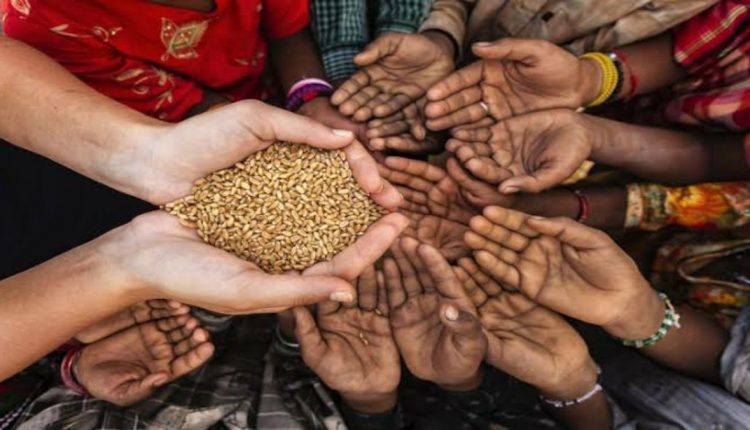‘Millions’ at risk of death as Ukraine war hits food supplies, Egypt warns

Egypt’s finance minister has warned that “millions” could die globally because of the food price crisis triggered by the Ukraine war, echoing warnings made by the UN and G7 countries as worries about a worldwide wheat shortage intensify. In an interview during a visit to London, Mohamed Maait warned of “food insecurity” around the world. However, he insisted Egypt had enough wheat to last until the end of the year. “This is something that we have to be very careful about,” said Maait. “We will feel shame if we find that millions of people are dying because of food insecurity. They are not responsible for that, they didn’t do anything wrong.” His comments come days after UN secretary-general António Guterres warned the Ukraine conflict risked plunging “tens of millions” into famine. “Global hunger levels are at a new high,” said Guterres. The war in Ukraine, climate change and the Covid-19 pandemic were also all contributing to a crisis that could last for years, he warned. G7 countries last week launched a “Global Alliance for Food Security” with the World Bank, to co-ordinate a short-term response. The group aims to increase supplies of food, fertiliser and fuel and to provide financial support to help vulnerable countries avert famine.
Egypt is the world’s biggest wheat importer and runs a large-scale subsidised bread programme that serves almost 70mn people. Until the war it sourced most of its wheat from Russia and Ukraine. Mostafa Madbouly, the prime minister, said this month that the country had wheat reserves for four months. In addition, the government aims to buy 6mn tonnes of locally grown wheat. But it is seeking new import sources, including potentially Pakistan and Mexico. Maait also told the FT he was confident Egypt would not fall into recession this year. “The issue of going to recession, I’m ruling [it] out,” he said. “Egypt was one of the few countries able to grow positively over the two years of Covid-19.” The government is predicting 5.5 per cent growth in the fiscal year that starts in July. The minister was optimistic that a new three-year funding package, requested by Cairo in March, would be agreed with the IMF. Discussions with the fund were “going very well”, he said. No figure had yet been suggested by the government or by the IMF, he added. The government has signalled its intention to sell off state assets including some military companies to raise revenue. Egypt has been left in a precarious position as a result of increasing inflation internationally, which has raised the cost of government borrowing. Domestic inflation has risen from 5 per cent before the war to about 14.5 per cent now.
Maait said the government was still planning to “rationalise” bread subsidies, which cost more than $3bn annually — a prospect raised before the outbreak of the Ukraine conflict but which has been delayed. “So as long as the cost of bread and the cost of producing bread increases, so the cost of subsidy on the budget increases . . . It cannot go like that,” he said. Altering bread subsidies was “not an imminent action”, but “the intention to move is there . . . over a gradual basis”. Maait said Cairo also planned to reform the cash credits received by millions of Egyptians for food, streamlining the list of those eligible to ensure only the needy received them. Egypt is hosting the UN COP27 climate summit this year and Maait said the country would be issuing new national climate targets, and a new green funding plan, in the coming weeks.
Read also
Wheat in Southern Brazil Impacted by Dry Weather and Frosts
Oilseed Industry. Leaders and Strategies in the Times of a Great Change
Black Sea & Danube Region: Oilseed and Vegoil Markets Within Ongoing Transfor...
Serbia. The drought will cause extremely high losses for farmers this year
2023/24 Safrinha Corn in Brazil 91% Harvested
Write to us
Our manager will contact you soon



